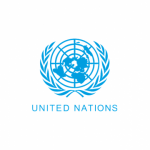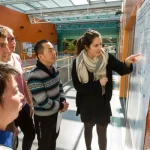Cornell University STAARS Fellowship Program aims for publication of resulting research findings in high quality, peer-reviewed journals and as working papers.
The Structural Transformation of African Agriculture and Rural Spaces (STAARS) fellowship program, a multi-institution collaboration managed by Cornell University in collaboration with the World Bank’s Development Research Group, and the Partnership for Economic Policy (PEP), announces its annual call for research proposals.
Early-career researchers selected as STAARS Fellows in 2024 advance rigorous, policy-oriented research on the causal determinants of productivity and income growth, asset accumulation, rural employment and risk management in African agriculture and rural spaces.
The Cornell University STAARS program spans 15 months from the date of expected selection to the delivery of final outputs by the STAARS fellow. Selected STAARS fellows are matched with at least one main mentor who is faculty, senior research staff, or an affiliate researcher at Cornell, the World Bank, or PEP and who shares an interest in the proposed topic, as well as with a (more junior) peer mentor.
Upon selection, mentorship and collaboration begin immediately with a series of launch workshops involving the fellows, mentors and STAARS leadership occurring during the first several weeks of the fellowship period. A period of regular remote collaboration follows, with weekly or biweekly virtual meetings. During this period, training workshops are held at relevant points in the teams’ research process. Training workshops are designed to assist in fellows’ professional development and supplement their skills.
Type: Fellowship
Application Deadline: January 19, 2024
Value & Duration of Award: The Fellowship covers travel and training expenses
Eligible Countries: African Countries
Eligibility: To be considered for the Cornell University Fellowship, you must:
- Be a early career researchers, either Ph.D. students in their final year prior to degree completion or preferably those who completed their Ph.D. no earlier than 2018
- Priority is given to researchers who have earned at least one degree from an African university, plan to work professionally in low- and lower-middle income countries, and have proposals relating to the research themes indicated above.
- Qualified female researchers are particularly encouraged to apply.
- STAARS welcomes applications from fresh Ph.D. graduates who can benefit from mentorship and additional training to become internationally respected and recognized researchers.
- Fellows are expected to complete the proposed project by submitting findings as a draft working paper by December 13, 2024, and proceeding to submit the paper to a peer-reviewed journal and/or conferences by June 30, 2025.
- Researchers are expected to be familiar with and have demonstrated access to existing data sets and have a strong working knowledge of appropriate software, typically Stata and/or R, and an interest in econometric analysis of high-quality data sets. Knowledge of geo-referenced data and GIS software to manage them is an asset.
- Knowledge of Stata and/or R will be assessed at the finalist stage.
How To Apply:
- Interested and qualified candidates should submit their completed proposals by clicking on “Apply For This Scholarship” below
- A worksheet that outlines the questions and can be used to collect answers prior to submitting online can be found using the link created below.
- Accepted applicants will be notified by mid-March 2024 and are expected to begin remote collaboration with their mentor and be prepared to join launch activities immediately upon acceptance.
Required Documents: To apply for the Cornell University Fellowship:
Applicants must prepare a maximum 2500-word research proposal, which motivates the selected research issues and objectives, outlines data sources and proposed methodology, and contains a convincing plan for completing the project by June 30, 2025. Projects that propose to use data that are not publicly available must provide documentation that they already have access to those data. All proposals shall be prepared in English.
Source: http://barrett.dyson.cornell.edu












